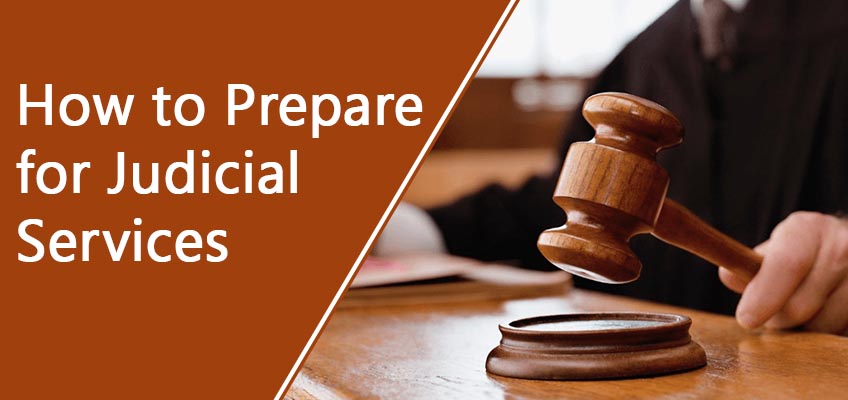If you want to become a Civil Judge or Judicial magistrate then you have to clear the Judicial services examination conducted by various states. And most of the aspirants do not have an idea as to how to prepare for judicial services.
The post of a Civil Judge is highly respectable and it also gives you the optimum remuneration. The status of a judge is far more superior to any other post in any country. The basic principle is that county is ruled by law and being a judge you are one of the pillars of Rule.
Having discussed the profile of a civil judge, it is pertinent to show the way of getting there. So, how to prepare for judicial services, let us start
The vacancy of judges is filled by the public service commissions of different states. These commissions organize exams specifically for those candidates who have passed the LL.B exam. The eligibility criteria for this exam is LL.B pass from a recognized university or college. Freshers who have just got their degree can also apply for this post.
Now come to the ways of preparation
One can prepare for this exam either by self study or can join any coaching center for guidance. One can also prepare for this exam by self-study by reading study materials specially designed for the preparation.
Study Materials
You can either purchase some ready-made study material or go through bare acts and books. The questions that are asked in the examination consist of the topic related to the Evidence Act, CrPC, IPC, contract law, tort, sales of goods act, property law, family law, partnership, constitution, Jurisprudence, etc.
You need to have to command over the above-mentioned subjects and you should also practice previous year question papers for the Judicial services exam that you are going to take. Recently Bihar judicial service is going to be organized by Bihar public service commission. By the time you must have started the preparation.
Ways of preparation
If you are preparing by self-study, first, you should start from bare acts, try to revise it as many times as possible, at least five times is a must, thereafter try to connect it with different related sections. for example, if you are studying CrPC you must connect with the sections of IPC and Evidence act, sometimes also with the constitution. This will give you a holistic approach to law as a subject.
Other thing is that , you tend to forget the topic that you have studied , for that purpose you should make a flow chart of all those sections that you have studied and write it down in fewest words so you can revise it quickly.
Take the help of books when it is needed to clear the concept otherwise if you are able to understand the concept from the bare act, don’t waste time in books, however, if needed books must be consulted.
Now the last part is practice. You should start practicing previous year papers and analyze every question deeply. Ponder a little on conceptual questions, look for other similar examples or cases.
If you find a case in a book and you do not understand then you should read it on google or other material like du case metes. Study hours that you should invest depends upon person to person, however, 4-5 hours of consistent study is enough to crack this exam.
So, apply above rules for your preparation and have a good luck for success!

Leave a Comment